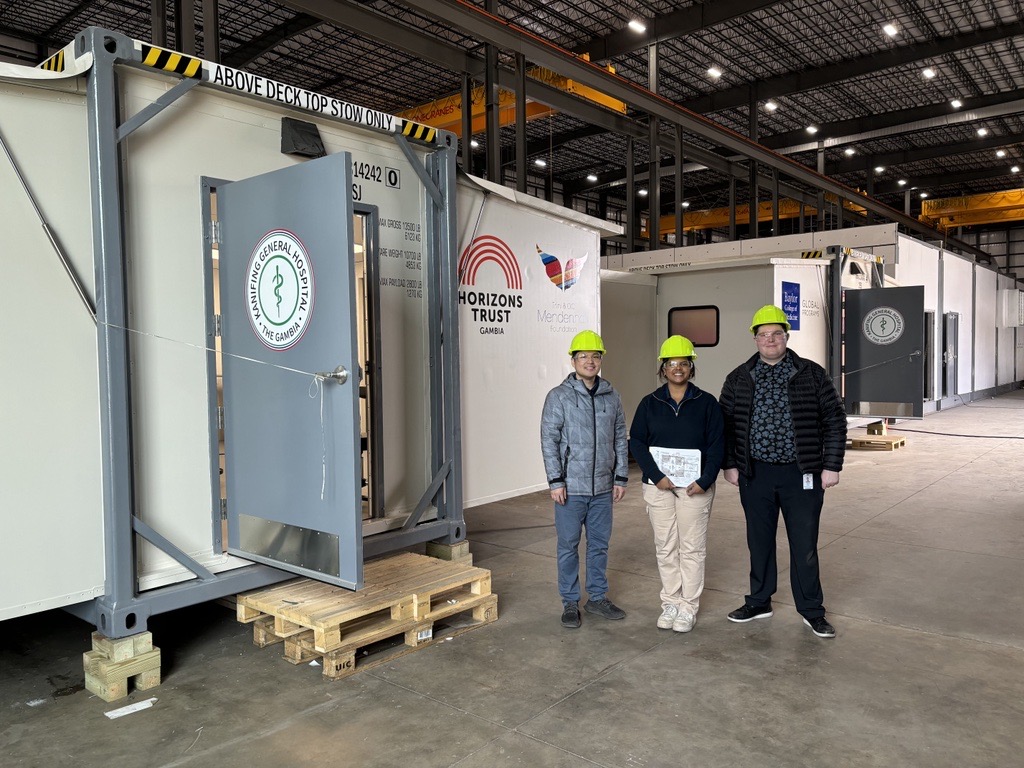Fatmata S Tambi, Senior Nursing Officer at Kanifing General Hospital (KGH) in The Gambia, has been leading the implementation of the training programme provided through the Safer Delivery project. In collaboration with Baylor College of Medicine in Texas and Horizons Trust Gambia, 100 health workers at Kanifing General Hospital have received training in global best practices in obstetric and neonatal care. Lectures have been both in-person and virtual, and trainees have consequently shared their knowledge with others through step-down training. Topics covered include breech delivery, eclampsia, postpartum haemorrhage (PPH) and shock management, obstetric fistula, maternal and neonatal sepsis, and maternal and neonatal resuscitation, among others.
Fatmata sums up the programme: “The Horizons Trust partnership with KGH has really helped to boost the staff skills so I would say that it really helped to boost the care for maternal and child health in the hospital… a lot of the staff are now really acquainted with following steps in terms of treatment, especially in the management of PPH which is one of the major causes of maternal mortality that we have been registering in the hospital.”
The Safer Delivery project is aimed at improving quality of care to mothers and babies, through continuous clinical training and strengthening infrastructure. The ultimate goal is to reduce maternal and neonatal mortality rates in The Gambia. The partnership first started in 2020 between Dr Sharmila Anandasabapathy, President of Baylor College of Medicine Global Programs, and Professor James N’Dow OBE DL, Founder of Horizons Trust Gambia. The Gambia’s Ministry of Health also became involved in order to make this initiative a success.
Not only is the Safer Delivery project contributing to lowering rates of maternal and neonatal mortality in The Gambia, but it’s also providing a unique opportunity for the continuing professional development of the maternity team at KGH. Fatmata credits the intervention as having “really helped in my leadership, in my management and in my skills building as well.” Among the midwives, orderlies, nurses, and anaesthetists who took part in the sessions, she adds that “it really helped to boost their confidence”.
Clinicians from Baylor College of Medicine and Baylor University led most of the training sessions, with doctors from KGH also delivering some classes. Training materials such as mannequins and learning resources were provided by Baylor College of Medicine so that KGH staff were able to simulate what they were learning. An evaluation of the training found that every lecture resulted in an increase in participants’ knowledge about the specialism being taught. In particular, results from pre and post lecture assessments for the obstetric fistula session showed more than a 72% jump in understanding of the subject following the lecture.

The next phase of the Safer Delivery project is the imminent arrival of the Smart Pods, built and designed by Baylor College of Medicine. These mobile emergency obstetric units will provide the space and equipment for KGH maternity staff to apply the knowledge they’ve gained through the training programme. They’re fully expandable and customisable pods that will serve as surgical obstetrics and post-anaesthesia care units. Fatmata says that the addition of the Smart Pods to KGH means surgeries will no longer be put on hold and “be given the priority that they deserve…this in itself is going to help the hospital in ways that we will not even imagine.”
Ishika Mukherjee is the Global Health Fellow at Baylor College of Medicine Global Programs. She has been part of the team that’s putting the final touches to the Smart Pods, which are about to be deployed and shipped to The Gambia. She explains: “The Smart Pod is a Baylor College of Medicine Global Programs invention by Dr Sharmila Anandasabapathy, which was originally created for the 2014 Ebola outbreak response.” Developed in partnership with Xploration Health, the latest Smart Pod heading to The Gambia is almost ready.
“It truly is wonderful to see it all come to fruition… just knowing how many lives it’s going to impact is absolutely fantastic. And we’re so, so excited to bring it to our partners in The Gambia.”
The Baylor team are hoping to travel to The Gambia soon after the arrival of the Smart Pods, and on the same trip are planning to deliver another series of in-person lectures with KGH staff.
Reflecting on the success of the Safer Delivery project so far, Ishika says, “it’s been definitely a wonderful experience, being able to work with Horizons Trust Gambia. And we hope to continue growing this partnership as we are approaching our deployment phase and building our training program.”
Find out how you can get involved with the Safer Delivery project by contacting us here.

